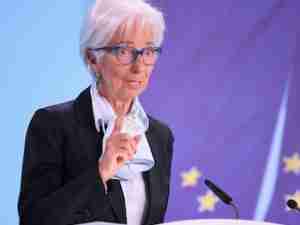Venezuela Abandons Its Last Claims to Democracy: Editorial
By: The Editors | Aug 01 2017 at 10:00 AM | International Trade
President Nicolas Maduro’s bogus vote to rewrite Venezuela’s constitution is an affront to the country’s democratic government. To persuade him to change course, Venezuela’s neighbors will have to forge an unprecedented common front.
Notwithstanding the regime’s claims, the number of Venezuelans who voted for a new constitutional convention on Sunday was likely well under half the number who voted against it two weeks ago. In the day preceding the vote, some 15 people were killed. But more unrest won’t deter the regime from dissolving the opposition-controlled legislature, cracking down further on protesters and booting internal dissenters such as its attorney general.
What’s needed is concerted and sustained action. The U.S. has just added Maduro to its list of Venezuelan officials facing sanctions, which Mexico, Panama and Colombia have said they would help enforce. Argentina, Brazil, Chile and Peru are among those who have said they won’t recognize the results of the vote, which Canada, the United Kingdom and the European Union have also condemned.
Venezuela’s neighbors should now expel it from the Mercosur trading bloc and renew their push for condemnation by the Organization of American States. They should also do more to publicize what they know about the regime’s nefarious activities—the hundreds of millions (if not billions) of dollars in assets its members have appropriated, its role in drug trafficking and human smuggling, or its support for terrorists and abusers of human rights.
More broadly, the United Nations Security Council needs to take up Venezuela’s abuses against its people. For that to happen, Latin America’s democracies will have to persuade China, a permanent member of the security council and Venezuela’s biggest creditor, that “non-interference” is a non-option.
Inevitably, more sanctions will have to be put on the table. But to be effective, they must be as collective as possible, target individuals rather than Venezuelans as a whole, and offer a clear off-ramp. A ban on Venezuela’s oil exports doesn’t pass that test: It would likely not only cause a disastrous debt default and economic hardship for ordinary citizens, but also give Maduro the perfect alibi for running his country into a ditch.
That’s why the U.S., the EU and Latin American nations must also offer ordinary Venezuelans a vision of a better future. Pledges of humanitarian aid and assistance from the International Monetary Fund and other financial institutions, for example, could help a democratic Venezuela recover from its spiraling economic crisis, including an inflation rate nearing 1,000 percent. Offering such help to a country with the world’s biggest proven oil reserves may seem absurd. But such are the depths to which Venezuela has sunk under Maduro’s inept and brutal leadership.
